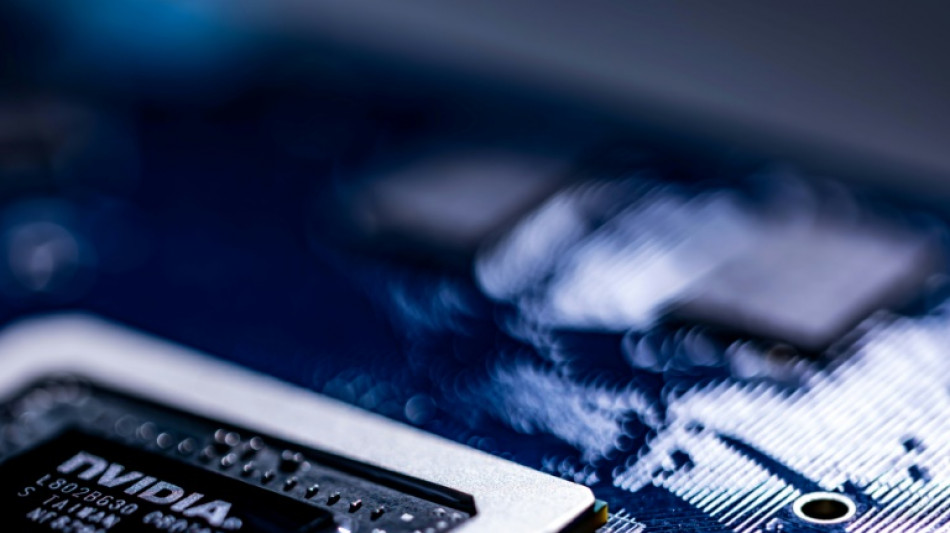
-
 Puerto Vallarta: the Mexican paradise in flames over the killing of 'El Mencho'
Puerto Vallarta: the Mexican paradise in flames over the killing of 'El Mencho'
-
Sorloth treble helps Atletico past Brugge into Champions League last 16

-
 Louvre president hands in resignation to Macron: Elysee
Louvre president hands in resignation to Macron: Elysee
-
Iran says deal 'within reach' ahead of US talks

-
 Torrential rains leave 25 dead in Brazil, dozens missing
Torrential rains leave 25 dead in Brazil, dozens missing
-
Northeast US faces power cuts and school closures after snowstorm

-
 US abstains in UN vote voicing support for Ukraine
US abstains in UN vote voicing support for Ukraine
-
Lebanon fears Israeli strikes if Iran situation escalates

-
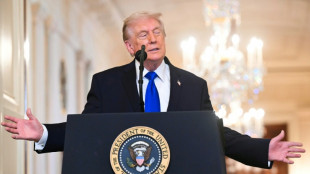 Trump seeks to strike back in crucial State of the Union
Trump seeks to strike back in crucial State of the Union
-
World-class Brook played 'the best innings of his life' - Afridi

-
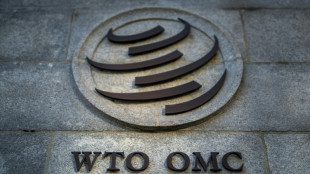 US appeals WTO ruling in dispute by China over clean energy subsidies
US appeals WTO ruling in dispute by China over clean energy subsidies
-
Guadalajara: World Cup host city rocked by narco violence

-
 Briiliant Brook 100 puts England into T20 World Cup semi-finals
Briiliant Brook 100 puts England into T20 World Cup semi-finals
-
Germany's Merz heads to China for talks centred on trade

-
 Briiliant Brook 100 puts England into T20 World Cups semi-finals
Briiliant Brook 100 puts England into T20 World Cups semi-finals
-
Warner Bros. 'reviewing' new takeover bid from Paramount
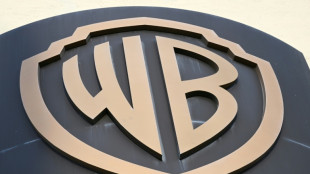
-
 US told EU it 'stands' by tariff deal: trade chief
US told EU it 'stands' by tariff deal: trade chief
-
Torrential rains leave 23 dead in Brazil, dozens missing

-
 UK govt says will release files on 'rude' ex-prince Andrew
UK govt says will release files on 'rude' ex-prince Andrew
-
Nearly an own gull! CPR performed on bird at Turkey football match

-
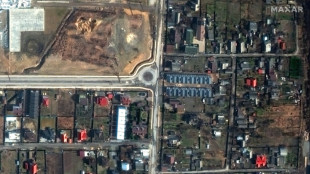 How AFP has used data analysis to cover the Ukraine war
How AFP has used data analysis to cover the Ukraine war
-
Paris says US envoy pledges not to 'interfere' in France affairs
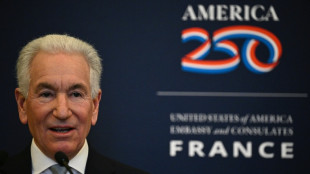
-
 Iran says students must respect 'red lines' after protests
Iran says students must respect 'red lines' after protests
-
Italian biathlete Giacomel has heart surgery after Olympic withdrawal

-
 Gazans salvage ancient books in mosque library damaged by war
Gazans salvage ancient books in mosque library damaged by war
-
Farhan scores 63 as England restrict Pakistan to 164-9

-
 Stocks bounce as traders assess AI fallout, tariffs
Stocks bounce as traders assess AI fallout, tariffs
-
Brazil court tries politicians over hit on Black councilwoman

-
 Senegal PM vows to double penalty for same-sex relations
Senegal PM vows to double penalty for same-sex relations
-
UK govt backs releasing documents tied to 'rude' ex-prince Andrew

-
 Novo Nordisk to slash prices of weightloss drugs in US
Novo Nordisk to slash prices of weightloss drugs in US
-
Welllage says Sri Lanka can rescue T20 World Cup campaign

-
 UK's royal protection officers urged to speak up in Epstein probe
UK's royal protection officers urged to speak up in Epstein probe
-
Aid groups petition Israel's top court to halt ban on Gaza, West Bank ops

-
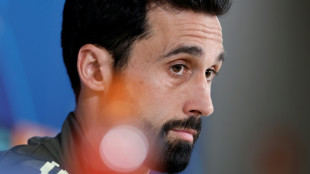 UEFA can make fight against racism more than a slogan: Real Madrid's Arbeloa
UEFA can make fight against racism more than a slogan: Real Madrid's Arbeloa
-
Bali flooding prompts tourist evacuation: official

-
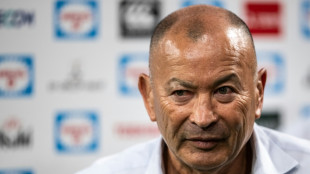 Jones says Borthwick's 'title-decider' comments behind England collapse
Jones says Borthwick's 'title-decider' comments behind England collapse
-
UK fines Reddit nearly $20 mn over children's data failures

-
 PSG star Hakimi faces trial for alleged rape
PSG star Hakimi faces trial for alleged rape
-
Netflix, Prime and Disney+ face UK broadcasting regulation
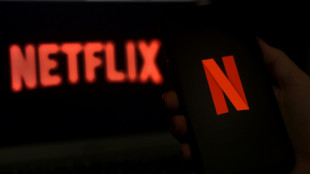
-
 Greece set new tourism record in 2025
Greece set new tourism record in 2025
-
Zelensky says Ukraine unbroken after 4 years, but Russia vows to fight on
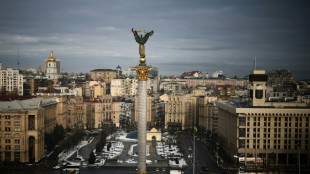
-
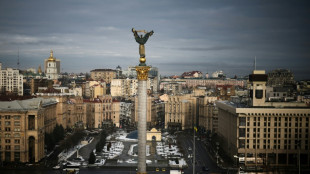 Zelenksy says Ukraine unbroken after 4 years, but Russia vows to fight on
Zelenksy says Ukraine unbroken after 4 years, but Russia vows to fight on
-
Snoop Dogg 'can't wait' for first Swansea visit

-
 Stocks fluctuate as traders assess AI fallout, tariffs
Stocks fluctuate as traders assess AI fallout, tariffs
-
Post-it maker 3M faces Belgian trial over 'forever' chemicals

-
 UK comedian Russell Brand pleads not guilty to new rape, assault charges
UK comedian Russell Brand pleads not guilty to new rape, assault charges
-
Duterte drew up 'death lists', boasted about murders: ICC prosecutor

-
 UK govt urged to release documents linked to ex-prince Andrew
UK govt urged to release documents linked to ex-prince Andrew
-
Rights group slams treatment of viral Japanese monkey


Competition heats up to challenge Nvidia's AI chip dominance
The artificial intelligence (AI) revolution has whetted the appetites of Nvidia's competitors, who are seeking to close the gap on the chip giant, which has so far been the central playmaker in the AI revolution.
Virtually unknown to the general public just three years ago, Nvidia now boasts the world's highest revenues, driven by sales of its graphics cards -- or GPUs (graphics processing units) -- the processors that are key to building the technology behind ChatGPT and its rivals.
- Why does Nvidia dominate? -
While it was not the first to develop GPUs, the California-based group made them its specialty starting in the late 1990s, at the very beginning of cloud computing, and thus has unique experience in the field.
Moreover, Nvidia is "a three-headed dragon," as Dylan Patel, head of consultancy SemiAnalysis, recently put it on the "No Priors" podcast.
It does not just design chips, but offers an entire infrastructure capable of making them work together with networking and software -- the dragon's two other heads.
Nvidia can "satisfy every level of need in the datacenter with world-class product," according to Jon Peddie of Jon Peddie Research.
- Where is the competition? -
At a considerable distance from Nvidia, whose market share is estimated at roughly 80 percent depending on the source, American firm AMD had until now been considered the runner-up.
But AMD generates the bulk of its revenue from CPU sales -- processors used for personal and business computers that are less powerful than GPUs -- and "can't divert resources from that golden egg," Peddie believes.
Determined to reduce their dependence on Nvidia, the major cloud providers have developed their own processors.
Google began using its Tensor Processing Unit (TPU) a decade ago, while Amazon Web Services (AWS)'s Trainium, the cloud-dedicated subsidiary, appeared in 2020.
Today, Google and Amazon account for more than 10 percent of the market and have even overtaken AMD in terms of "performance, pricing, usability, reliability, and ability to produce enough chips to satisfy the biggest customers," argued Jordan Nanos of SemiAnalysis.
Google is even offering its chips to third-party customers, according to several media reports. Contacted by AFP, it did not respond. Amazon, however, does not sell its Trainium to other players.
- Where do the Chinese stand? -
The only nation rivaling the United States in the sector, China is seeking to make up for lost time -- and is having to do so without the most advanced US chips, which are now subject to export restrictions.
For Nanos, Huawei ranks among Nvidia's most credible competitors, alongside Google or Amazon, and ahead of AMD.
Like Google and Amazon, their Chinese equivalents Baidu and Alibaba are also now having their own AI processors manufactured, though these remain merely substitutes for Nvidia's GPUs.
"They can't catch up technically for a while using in-country" fabrication facilities, said Peddie.
But "over time, with its huge and smart workforce, and subsidized investment, China will be able to make state-of-the-art fabrication systems."
- Is Nvidia under threat? -
No expert sees the Santa Clara, California, giant loosening its grip on the sector in the near future.
"Nvidia underpins the vast majority of AI applications today," notes John Belton, analyst at Gabelli Funds. "And despite their lead, they keep their foot on the gas by launching a product every year, a pace that will be difficult for competitors to match."
In early September, Nvidia announced that its new generation, Rubin, would be commercialized in late 2026, with performance for AI functions estimated at 7.5 times that of its flagship product currently on the market, Blackwell.
C.Garcia--AMWN



